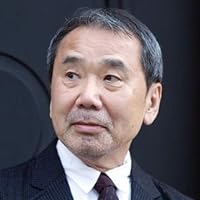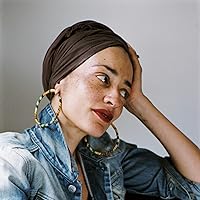Paris Review Quotes
Quotes tagged as "paris-review"
Showing 1-10 of 10

“I think that my job is to observe people and the world, and not to judge them. I always hope to position myself away from so-called conclusions. I would like to leave everything wide open to all the possibilities in the world.”
―
―

“When I am working on a book or a story I write every morning as soon after first light as possible. There is no one to disturb you and it is cool or cold and you come to your work and warm as you write. You read what you have written and, as you always stop when you know what is going to happen next, you go on from there. You write until you come to a place where you still have your juice and know what will happen next and you stop and try to live through until the next day when you hit it again. You have started at six in the morning, say, and may go on until noon or be through before that. When you stop you are as empty, and at the same time never empty but filling, as when you have made love to someone you love. Nothing can hurt you, nothing can happen, nothing means anything until the next day when you do it again. It is the wait until the next day that is hard to get through.”
―
―

“New York just expects so much from a girl—acts like it can’t stand even the idea of a wasted talent or opportunity. . . . Rome says: enjoy me. London: survive me. New York: gimme all you got. What a thrilling proposition! The chance to be “all that you might be.” Such a thrill—until it becomes a burden.”
―
―

“I've never been drawn to the feminist movement. I've never been put down by a man, unless I deserved it, and have never felt inferior.”
―
―
“Perhaps the critics are right: this generation may not produce literature equal to that of any past generation--who cares? The writer will be dead before anyone can judge him--but he must go on writing, reflecting disorder, defeat, despair, should that be all he sees at the moment, but ever searching for the elusive love, joy, and hope--qualities which, as in the act of life itself, are best when they have to be struggled for, and are not commonly come by with much ease, either by a critic's formula or by a critic's yearning.”
―
―
“I still maintain that the times get precisely the literature that they deserve, and that if the writing of this period is gloomy the gloom is not so much inherent in the literature as in the times.”
―
―

“I regard the theater as the greatest of all art forms, the most immediate way in which a human being can share with another the sense of what it is to be a human being. This supremacy of the theater derives from the fact that it is always "now" on the stage.”
―
―

“All of us [writers] failed to match our dream of perfection. So I rate us on the basis of our splendid failure to do the impossible. In my opinion, if I could write all my work again, I am convinced that I would do it better, which is the healthiest condition for an artist. That’s why he keeps on working, trying again; he believes each time that this time he will do it, bring it off. Of course he won’t, which is why this condition is healthy. Once he did it, once he matched the work to the image, the dream, nothing would remain but to cut his throat, jump off the other side of that pinnacle of perfection into suicide. I’m a failed poet. Maybe every novelist wants to write poetry first, finds he can’t, and then tries the short story, which is the most demanding form after poetry. And, failing at that, only then does he take up novel writing.”
―
―
All Quotes
|
My Quotes
|
Add A Quote
Browse By Tag
- Love Quotes 98.5k
- Life Quotes 76.5k
- Inspirational Quotes 73.5k
- Humor Quotes 44k
- Philosophy Quotes 30k
- Inspirational Quotes Quotes 27.5k
- God Quotes 26.5k
- Truth Quotes 24k
- Wisdom Quotes 24k
- Romance Quotes 23.5k
- Poetry Quotes 22.5k
- Death Quotes 20k
- Life Lessons Quotes 20k
- Happiness Quotes 19k
- Quotes Quotes 18k
- Faith Quotes 18k
- Hope Quotes 18k
- Inspiration Quotes 17k
- Spirituality Quotes 15k
- Religion Quotes 15k
- Motivational Quotes 15k
- Writing Quotes 15k
- Relationships Quotes 14.5k
- Life Quotes Quotes 14.5k
- Love Quotes Quotes 14.5k
- Success Quotes 13.5k
- Time Quotes 12.5k
- Motivation Quotes 12.5k
- Science Quotes 12k
- Motivational Quotes Quotes 11.5k


